Principal Investigator
Locations
Study Code
Study Status
Abstract
An important goal of transplant research is to allow people with a transplanted organ to live without long-term use of immunosuppression, which has serious side effects including increased risk of infection and malignancy. Previous research suggests that a proportion of liver transplant recipients are able to come off immunosuppressive drugs without experiencing rejection.
The goal of the OPTIMAL study is to gradually reduce anti-rejection medication(s) in liver transplant recipients over a period of time until the medication(s) are stopped. This is called immunosuppression withdrawal. The OPTIMAL Study will enroll 60 adult liver transplant recipients. These recipients will undergo supervised, gradual withdrawal of their immunosuppressive medications to determine how many participants can achieve a state of operational tolerance.
The OPTIMAL investigators also hypothesize that continual exposure to a transplanted organ for a significant period of time may render the immune system “exhausted,” thereby tempering the associated inflammatory response. For this reason, the OPTIMAL study will enroll transplant recipients who have been living with their transplanted liver for at least three years, and will assess whether biomarkers of an exhausted immune system can help predict individuals who can successfully discontinue immunosuppressive medication without experiencing damage to their transplanted organ.

About This Study
An important goal of transplant research is to allow people with a transplanted organ to live without long-term use of immunosuppression, which has serious side effects including increased risk of infection and malignancy. Previous research suggests that a proportion of liver transplant recipients are able to come off immunosuppressive drugs without experiencing rejection.
The goal of the OPTIMAL study is to gradually reduce anti-rejection medication(s) in liver transplant recipients over a period of time until the medication(s) are stopped. This is called immunosuppression withdrawal. The OPTIMAL Study will enroll 60 adult liver transplant recipients. These recipients will undergo supervised, gradual withdrawal of their immunosuppressive medications to determine how many participants can achieve a state of operational tolerance.
The OPTIMAL investigators also hypothesize that continual exposure to a transplanted organ for a significant period of time may render the immune system “exhausted,” thereby tempering the associated inflammatory response. For this reason, the OPTIMAL study will enroll transplant recipients who have been living with their transplanted liver for at least three years, and will assess whether biomarkers of an exhausted immune system can help predict individuals who can successfully discontinue immunosuppressive medication without experiencing damage to their transplanted organ.
The OPTIMAL study has 3 phases: the Screening phase, the Immunosuppression Withdrawal phase, and the Follow-up phase. In total, participation may last between 3.5 and 6 years.
Depending on the phase of the study and each participant's outcome, visit schedules will vary. In general, study visits will consist of a brief physical exam, and some visits will also include questionnaires as well as blood, urine, stool (fecal), and liver biopsy collections.
